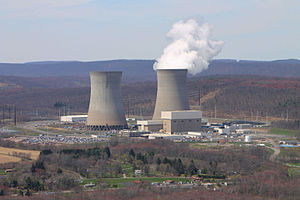
A poll recently commissioned by the Pennsylvania Manufacturers’ Association (PMA) found that 68 percent of participants are not supportive of proposed legislative action that would provide government subsidies for the commonwealth’s nuclear plants and is projected to increase resident electricity rates by at least $500 million annually.
“Pennsylvanians support competitive electricity markets and want to keep the benefits of innovation, efficiency, and savings,” PMA President and CEO David N. Taylor said. “Electricity customers are not willing to give up the hard-fought benefits competition delivers for them, and they will punish elected officials who hike electricity rates to bail out uncompetitive energy companies.”
The bills – The Keep Powering Pennsylvania Act and Senate Bill 510 – are currently being pushed through as part of final rush of activity before the June 30 budget deadline. They seek to update the state’s Alternative Energy Portfolio Standard (AEPS) to include Pennsylvania’s five nuclear power plants, allowing protection for the utilities under a government subsidy program. AEPS was established in 2004 to encourage the development of wind, solar, and other alternative sources of power.
Specifically, the update would add a third tier in which the state’s 11 electricity distributors would be required to buy credits from carbon-free energy producers, including nuclear power.
In a recent blog post regarding the poll, PMA stated that any discussion of the hazardous waste generated by nuclear power is being overlooked by the bailout bills. The association also mentioned that overturning competitive markets would be counterproductive for the state’s energy industry and would do nothing to save Exelon’s Unit 1 on Three Mile Island, which is set to shut down by Sept. 30. The four remaining nuclear power plants – operated respectively by Exelon, FirstEnergy Solutions, and Talen Energy – are still profitable utilities, PMA said, leaving residents to pay substantially higher rates to subsidize working plants.
The poll showed that 66 percent of those surveyed agreed that competition and consumers should continue to determine Pennsylvania’s electricity markets. Fifty-six percent said that they would be less likely to vote for an elected official who supports the nuclear bailout legislation. However, 62 percent also said they had not heard about the legislation.
The automated phone survey was conducted by the Omega Research Group in early April and received responses from 600 Pennsylvania residents. It reflected a 2 percent margin of error in its reporting.